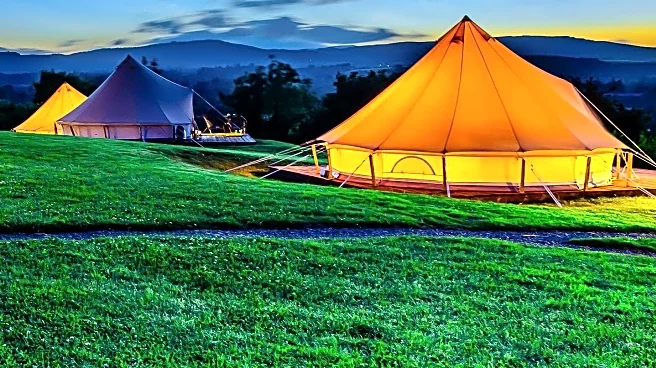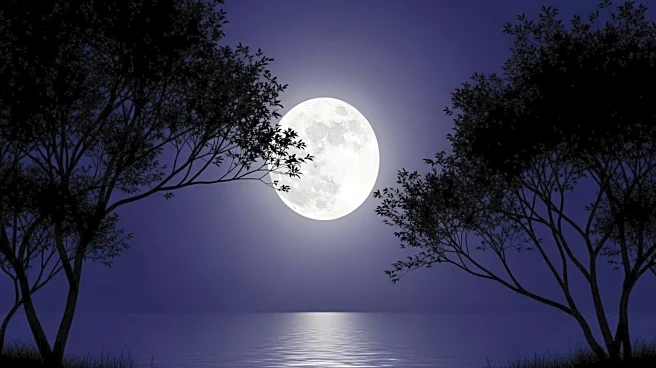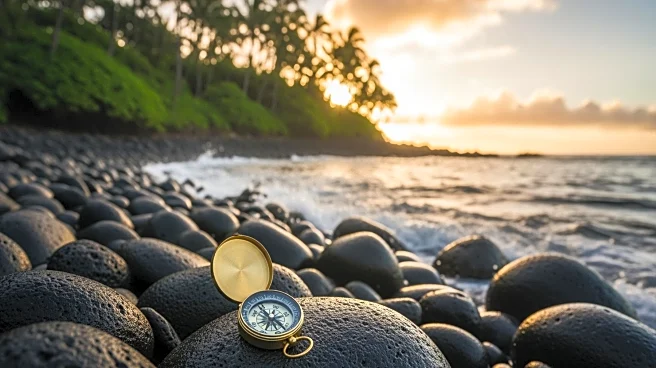What's Happening?
Pennsylvania state parks are set to introduce glamping, a form of glamorous camping, to eight parks next year. This initiative aims to attract more visitors by offering a luxurious camping experience that
combines the comforts of home with the beauty of nature. Glamping typically includes amenities such as comfortable beds, electricity, and private bathrooms, distinguishing it from traditional camping. The move is part of a broader effort to boost tourism and provide diverse recreational options for residents and visitors alike.
Why It's Important?
The introduction of glamping in Pennsylvania state parks is significant as it reflects a growing trend in outdoor recreation that caters to a wider audience. By offering more comfortable and accessible camping options, the parks can attract individuals who may not be inclined to traditional camping. This can lead to increased park attendance and revenue, supporting conservation efforts and park maintenance. Additionally, it aligns with the state's goals to enhance tourism and promote outdoor activities, potentially benefiting local economies through increased visitor spending.
What's Next?
As Pennsylvania prepares to launch glamping in its state parks, park officials will likely focus on infrastructure development and marketing strategies to ensure a successful rollout. This may involve partnerships with glamping service providers and promotional campaigns to highlight the unique offerings. Stakeholders, including local businesses and tourism boards, may collaborate to maximize the economic impact. The initiative could also prompt other states to consider similar enhancements to their park systems, fostering a broader shift in outdoor recreation trends.
Beyond the Headlines
The introduction of glamping raises questions about the balance between preserving natural environments and accommodating modern recreational demands. While it offers economic benefits, it also necessitates careful planning to minimize environmental impact. This development could spark discussions on sustainable tourism practices and the role of state parks in providing diverse yet eco-friendly experiences.











